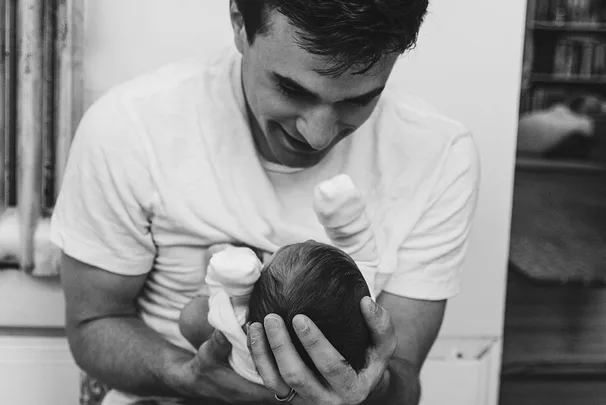For all the progressive steps we’ve made with gender equality in recent years, we still have a long way to go when it comes to parental leave.
Especially in Australia, where mothers take 95% of the primary carers leave and a lack of legislated shared parental leaveand traditional gender roles are all working as a deterrent to more Dads taking on the role.
The report, conducted by the Australian Institute of Family Studies, found that the number of hours fathers spend in employment remains at the same level before and after having children, and that fathers parent around their hours of employment.
“What we often see when we are talking to families in research is that there is an assumption that the baby will come and the mother will take time off,” said Jennifer Baxter, senior researcher at the AIFS. “For some mums it’s a life desire but for others it’s a struggle to make it work. There’s such a great diversity in views and wishes around these decisions and what we think is there isn’t enough of a discussion between mothers and fathers to explore all of the options.”
Because Australia does not have a nationally legislated approach to shared parental leave, fathers are often automatically regarded as the secondary carer, Parents At Work chief Emma Walsh said in an article published with the report.
“Most employers provide limited parental leave for secondary carers, if any at all,” Walsh said. “This divide is reinforced by entrenched social views of the breadwinner and homemaker gender ideals. Fathers are conscious of a stigma and bias around taking extended leave, especially when they are unable to see many of their male colleagues taking leave.”
In Australia, the government offers few leave options to men. The current scheme, called Dad and Partner Pay, provides two weeks off at a minimum wage – leaving fathers who want to take extended leave at the mercy of their workplace policy.
But over half the employees surveyed by the Workplace Gender Equality Agency do not provide paid primary carer’s leave in addition to the government’s schemes.
Despite the fact that anecdotal evidence all points men wanting to take more leave and assume the role of primary carer after their children are born, workplace culture will often not encourage it.










